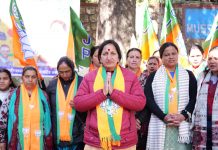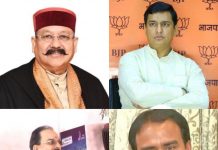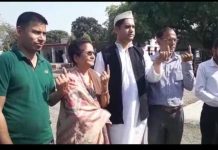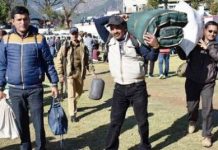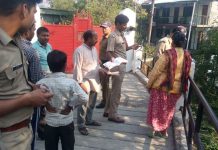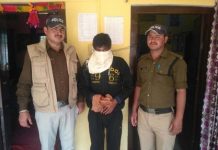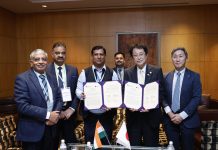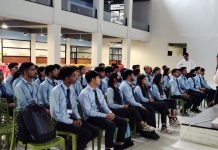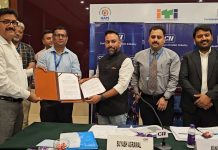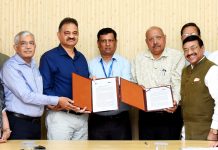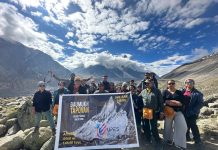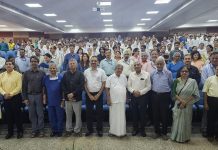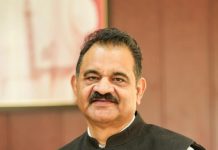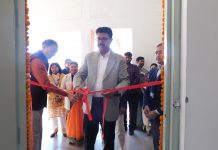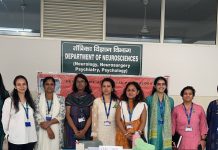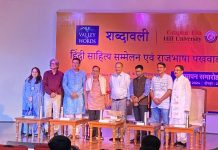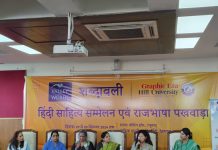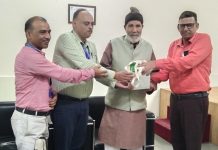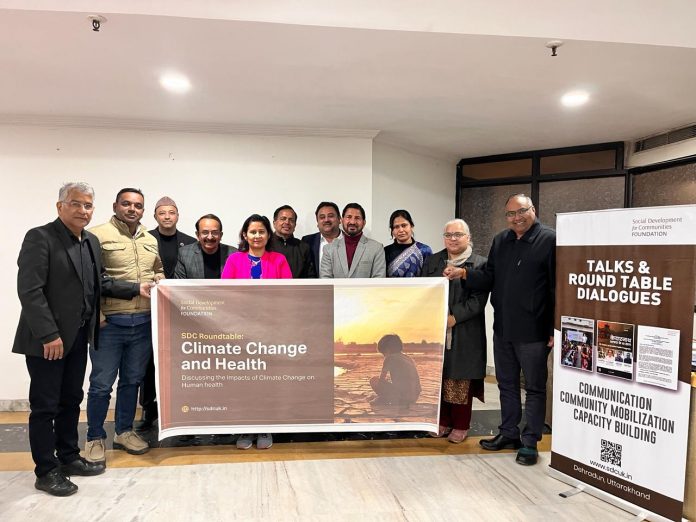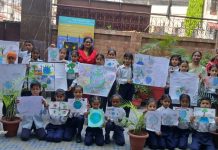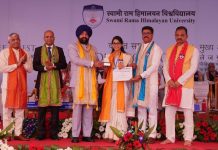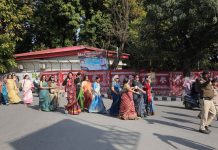Dehradun: The city saw state’s experts and top-notch healthcare professionals come together for a first ever roundtable dialogue to discuss the implications of climate change on the physical and mental health of people in Uttarakhand.
The roundtable dialogue was organized by environmental action & advocacy group, SDC Foundation, and attended by those such as surgeon and writer Dr. Mahesh Bhatt; former Scientist at Wadia Institute of Himalayan Geology Dr. P.S. Negi; Chief Medical Officer (CMO) LBSNAA, Mussoorie Dr. Mayank Badola; gynaecologist Dr. Meghna Aswal; former Additional Director, Uttarakhand Health Dept, Dr. S.D. Joshi; UNDP State Head Uttarakhand Dr. Pradeep Mehta; Fellow at Centre for Ecology, Development and Research (CEDAR) Dr. Nidhi Singh; Uttarakhand Health Department’s IEC Officer Anil Sati; Social worker Rakesh Bijalwan; Founder SDC Anoop Nautiyal and Lead Research & Documentation SDC Prerna Raturi.
Dr. Mahesh Bhatt began the roundtable and expressed concern at how there was an immediate need for bringing climate justice to the table when talking about climate change. “I might be using two cars, air-conditioning and 10 light bulbs in my house and be safe. However, my cousin in a remote village in Uttarakhand might witness his fields being washed away from a cloudburst, which happened due to climate change, in which I too have played a part,” said Dr. Mahesh Bhatt.
Agreeing to how everything is interconnected, Dr. PS Negi cited the example of how particulate matter emitted from fires and fossil fuels are increasing the temperatures and becoming a cause for receding snowlines and glaciers. “Climate change affects everything – ecology, economy, health, and wellbeing. Entire species of medicinal plants in the Higher Himalayas are at risk.”
Dr. Mayank Badola said that Uttarakhand government is working on bettering its healthcare in the face of climate change by capacity building, IEC robustness, and making healthcare facilities less polluting. “We need more efficient surveillance systems and detection systems for diseases, especially those that are vector borne,” he said, adding, “Those living in the mountain areas and coastal regions are most susceptible to climate change. Thus, there is as much a need for mitigation as adapting measures.”
Dr. Meghna Aswal brought her own experiences to the fore and shared how she has seen a direct connection between rising atmospheric temperatures and preterm labor and heat stress in pregnant women, as well as low birth weight and fetal distress in newborns. “Even as covid was taking its toll, we actually saw a decrease in asthma patients due to low air pollution levels. Scientific evidence also shows a connection between air pollution and neurodevelopmental and neurodegenerative disorders,” she said.
Dr. S.D. Joshi shared how he once saw a post mortem report of a young male with black lungs and he wasn’t a smoker; he worked in the transport sector. “Microplastics, black carbon and so many other forms of pollution are causing a surge in diseases such as strokes, heart attacks, diabetes, thyroid dysfunction, and so on,” he said.
UNDP’s Dr Pradeep Mehta spoke with reference to the entire Himalayan belt and said his own studies and work had shown entire apple belts vanishing and even several varieties of rajma becoming extinct. “Our culture of crop diversity and bara anaja (12 grains) is fast dying, which is impacting our nutrition intake. Studies show that the number of climate migrants has far overtaken the number of war migrants, which is a cause for extreme worry.”
Dr Nidhi Singh of CEDAR pointed out how climate change and health is a complicated and complex issue, and said that even though stopping development is not the answer, we need to focus more on impact-based development rather than need-based development. “It is also crucial that we bring discussions on gender equality, disability and social inclusion (GEDSI) to the table. After all, it is women, children and the disabled who bear the brunt of any catastrophe,” she said.
Information, Education and Communication (IEC) Officer Anil Sati talked about the increase in vector-borne diseases in not only the plains and valleys of Uttarakhand but also the higher reaches of the hills. “Dengue lasts for months now and people in the far-up Chamoli district were affected by it. Somewhere and somehow, we are all responsible for climate change and need to change our habits and lifestyles.”
Social worker Rakesh Bijalwan, who works in the field of migration and reverse migration questioned mindless consumption and the pattern of chaotic urbanization. “Yes, we all are looking forward to changing our diesel and petrol cars to electric vehicles (EVs), but have we stopped to think the pollution caused from these car batteries, which is far more than those from hybrid or internal combustion models,” he said, underlining the need for mindful consumption and better public transport.
SDC Foundation’s Anoop Nautiyal and Prerna Raturi expressed gratitude to the participants and said this was the beginning of bringing discussions on health and climate change to the fore in Uttarakhand. “We urge everyone to take this crucial issue to their networks and forums so that we can come up with strategies for both mitigation and adaptation to climate change.”

